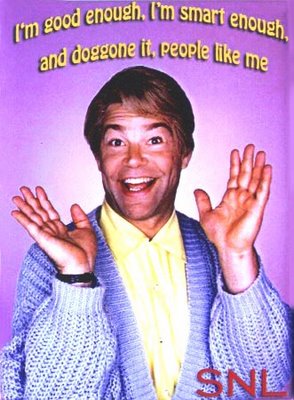There’s a well described phenomenon in the medical literature known as “publication bias.”
Simply put, we are all too collectively consumed with moving the ball of scientific progress forward.
In practice this desire ends up meaning that a result such as “treatment A works better than the current standard of care,” is much more likely to be published in a prestigious journal than a result such as “treatment A does not work as well as the current standard of care.”
If we were only concerned with figuring out how our world worked, a.k.a. seeking the truth, then negative results would be every bit as valued as positive results.
Objective reality simply exists, and ideally it is science’s job to uncover truth with the honest reporting the facts as they are revealed by a carefully executed scientific method.
But the existence of publication bias proves that our primary concern is not always with the truth. Like any other animal what we really care about is success! Reproductive success. Material success. Nutritional success, and temporal success, (longevity.)
And I am as guilty of this success bias as the next guy.
Take last years New Year’s resolution. My experiment with VB6 was a resounding success. I lost 12 to 14 pounds, dramatically increased my intake of vegetables and whole foods, and decreased my intake of refined starches and animal products. My health got better. I made a real lifestyle change. And it was all surprisingly easy.
So I wrote about that experiment again and again.
Which raises the obvious question: what about this year’s New Year’s resolution? Remember that one? The one about me running every single day for a year and increasing my time running each day by a minute each week?
Whatever happened to that experiment? There was the announcement… And then there was radio silence.
Why? Well because it was not a life-changing success.
The results of my grand experiment are in…
I should’ve known that there would be a problem when on my post announcing my intention to pursue this plan, experienced runner and reader Robert K commented,
I laud your enthusiasm for running, but I fear that your ambitious plan has set you up for likely failure. I have been running for 27 years, since my third year of med school, recreationally, road and trail, and competitively, all distances up to 26.2. Running daily is a sure-fire recipe for both injury and burnout, not to mention time constraints that knock you off course, and it is really not a great way to get in shape, assuming that is your goal.
This warning came from an experienced source and echoed almost everything that I had read about beginning a running program on the Internet.
Unsurprisingly Robert was right. And the way it played out was…
- I started out running eight minutes a day and didn’t miss a day for the first seven weeks. Each week I added a minute until I was up to 15 minutes a day except for one day when I fell asleep on the couch and didn’t wake up until the next morning. On the day following that I ran 30 minutes instead.
- Around week 5 I began to experience a pain in my lateral left midfoot which was severely worsened after running and mildly improved after rest.
- I actually found that I enjoyed running everyday, and that keeping it simple (as in running every day no matter what) really helped to form a habit. And so I pressed on running every day.
- At some point I started limping around while walking and the top of my foot became swollen and tender.
- I got an X-Ray of the foot and was given a preliminary diagnosis a third metatarsal stress fracture.
- I stopped running. (That was 3 weeks ago. ). The last week or so my foot just started feeling better, but it is still sore and I’m not running or even planning on running for another month or so.
So there you have it. my goal was to run every day without pause and to be running one hour every day by the end of the year. By any objective measure: my goal was not achieved. But I would not go so far as to say that the resolution was a failure. After all I learned plenty of lessons during my brief experiment.
Lesson 1: Do Your Research.
Part of the reason why the VB6 experiment was a such success was because it was based on solid research and expertise.
Contrast that to this year’s resolution to run every day. It kind of came out of nowhere.
It was certainly a contrarian move on my part in that most experts told me not to run every day. They warned that I would injure myself, or burn out. And they were right! I broke a bone.
The conclusion could not be more obvious. Betting against the conventional wisdom of experienced experts is a great way to think outside the box. And it’s also a great way to be wrong most of the time.
Lesson Number 2: Everyday Is Powerful.
Although I would give myself a failing grade when it comes to the entire New Year’s resolution, One aspect of it’s design worked exactly as I had intended.
When I introduced my idea for running every day on the blog I wrote this:
What I wanted to do was run every day for a year. I would start off slow, running only eight minutes every day. But each week I would add one minute to my daily running time, so that by the end of the year I was running one hour every day. I wanted to run every day because I find it is easier to do something every day, (rather) than to choose to do it sporadically.
And I found that this every day approach worked exactly as intended.
Doing something every day is a completely different experience from doing something every other day or even most days. And I think there is a good reason for this.
When there is no chance of you not doing something, excuses become meaningless, and the action simply gets done. I found that the bargaining voice of my subconscience was largely silenced because no matter how good the excuse I came up with not to run, I knew deep down that I would run anyway.
As an example of this “power of the every day” I think back to a time when I went golfing with friends and started playing at eight in the morning walked 36 holes (walking somewhere between 10 and 15 miles) and finishing at sunset. My foursome then grabbed some dinner and three or four cocktails before heading back to our rooms at the resort. At that point I remembered that I had not run that day, so I went out, tipsy, in the unlit darkness of the Oregon coast and ran my 13 minutes. Why? Because I ran every day.
(Which is not to argue that this was a particularly smart decision. I ended up stepping in a pothole and falling forward and scraping my elbow ((coulda been worse)). The point is simply that the “every day” rule created a powerful compulsion to actually run regardless of the wisdom of running.)
Lesson 3: The Persuasiveness Of Repetition.
Although the repetitive slapping of my soles against the pavement did eventually cause me to fracture a bone in my foot, it had some other more beneficial consequences.
By starting slowly and running every day, my body gradually changed without much trauma. My muscles were never severely sore only pleasantly achy. I never felt like I was breathing fire, and my respiratory capacity simply grew slowly to keep up with my growing demands. I didn’t even get blisters.
Lesson 4: The Surprising Effect Of A Mantra.
When I started running every day, I joked to my wife… “I’m going running now… Because I’m a runner.” It was a ridiculous statement for someone to make who was running for the first time in years. But to a sarcastic type like me it was also damned funny. So I began repeating the phrase over and over again, day after day, to anyone who would listen.
So an offhanded comment became a recurring joke, and after a few weeks the recurring joke became a mantra.
And I may be wrong, but I’m pretty sure that this mantra affected me on a deeply subconscious level. Within five or six weeks I truly begin to think of myself as a runner. It was as if the repeated voicing of a ridiculous statement imprinted the statement (scrubbed clean of any sarcasm) deep within my brain until it became an actual part of my self-identity and not so ridiculous at all.
By the time my injury forced me to stop running, the idea of not running felt like a betrayal of myself. I even began to feel a little bit depressed, as if I were missing a limb or something. Why? Because I was a runner who was not running!
So even though I’m kind of allergic to the whole idea of self-help, I believe at this point that repeatedly saying something had a transformative effect on how I saw myself , which, in turn, effected how I behaved, and eventually even who I was. And even though the statement “Because I’m a runner” was originally uttered as a joke, it’s effect became indelible.
Which all sounds a little bit ridiculous, I know. Frankly it makes me feel like a real life Stuart Smalley staring into the mirror and proclaiming “Doggone it people like me.”
But there you have it. At the risk of sounding Pollyanna-ish, I do feel reflecting upon my failure has taught me some valuable lessons. And these are lessons that I can certainly put to use in the future.
So pushing my failure into a closet and not talking about it would’ve been counterproductive, much like failing to publish a well executed medical study with a negative result.



8 Responses to “Strong Will, Broken Bone”